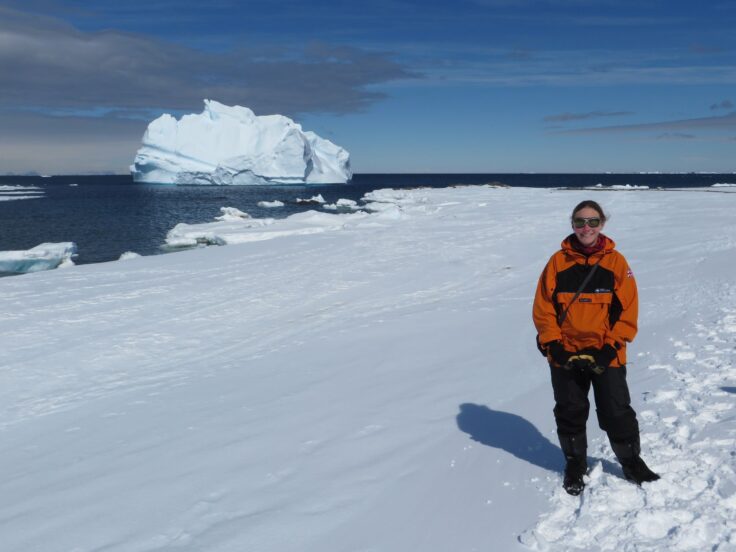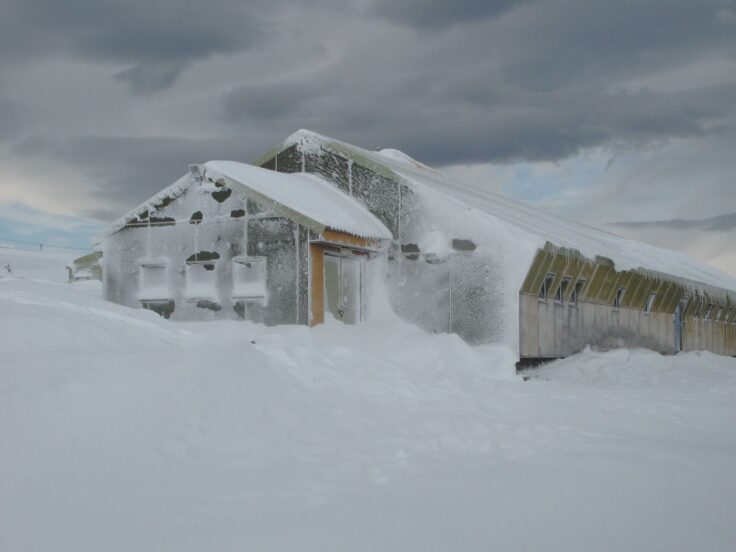12 December, 2015 Marie byrd Land, Rothera
The long wait
I have now been at Rothera Research Station for 2 weeks. I had hoped to be at our field site by now, but given how remote it is (1000 miles from Rothera), I guess I knew we might have a while to wait. We are mainly waiting for our field assistants, Al and Iain, to get there first. They have most of our gear and are driving hundreds of miles across the ice on skidoos. In my mind, what they are doing is nothing short of heroic.
I have been talking to them most nights on their the radio, and they have either driven for 15 hours in one go, or had 3 consecutive days sitting in their tent waiting for good weather.
Waiting is a big part of their job, and mine too. I am, admittedly, not naturally a patient person. I live my life on the go, fitting in as much as possible around work and family commitments. But I learned at an early stage of my BAS career that being patient, flexible, and planning for all eventualities is the best approach to Antarctic fieldwork. The environment poses considerable logistical challenges. The weather can be very changeable, going from good to extremely bad (and potentially life-threatening) in a very short time. Sometimes you get to a site and find you cannot work there because it has snowed too much and the rocks aren’t visible. Or you just can’t safely get to an important rock outcrop. In these cases you either change your plans or sit and wait.

For me, waiting poses both difficulties and pleasures. When I have time to think, I start to miss my family more, and to worry more about how the upcoming fieldwork will go. I also find I start to feel very lethargic from not doing enough exercise (this is particularly bad when stuck in a tent for days on end). In the tent, a routine – even a mundane one – becomes important to maintain energy and motivation. I also try to pace the things I am doing so they are not all over with too quickly. On base, I try to get out for a walk each day, although that is not always easy – we had a huge dump of snow at Rothera last night, and now walking is nearly impossible without sinking!

Of course there are also many pleasures in waiting, especially here. It allows me time to really take in and enjoy my surroundings – especially the majestic beauty of the snow-clad mountains and icebergs that are all around me right now. Now that we have finished our packing and are ready to leave for the field, I am starting to ease into a slower pace of life which is refreshing compared with the frantic life I seem to lead at home, and compared with the intensity of my research that is to come once we get to our field site. There is time to chat with new friends here, as well as colleagues I’ve known for years. For example, I just spent my tea break quizzing BAS’s long term penguin expert, Phil Trathan about his recent work tagging emperor penguins. It was utterly fascinating. He had only got back from fieldwork at 1.30 this morning and was still full of enthusiasm for his work! And the other day I discovered one of the chefs here has worked with a very famous Michelin-starred chef in London whom I greatly admire. That’s one thing I love about working in the Antarctic: you cross paths with people you would never meet in ordinary life.
Next week this waiting phase – for me, a special time of reflection – will hopefully be over, and we will need to step up a few gears when we fly to our field site. As you all wait in anticipation of the Christmas holidays, I am waiting to start what I came to Antarctica for: a period of hard work and survival in the name of research. I am excited and nervous all in one!
In November 2015 geologist Joanne Johnson and 3 colleagues set off to work at one of the most remote parts of Antarctica to find out what’s causing the changes to the West Antarctic Ice Sheet.
